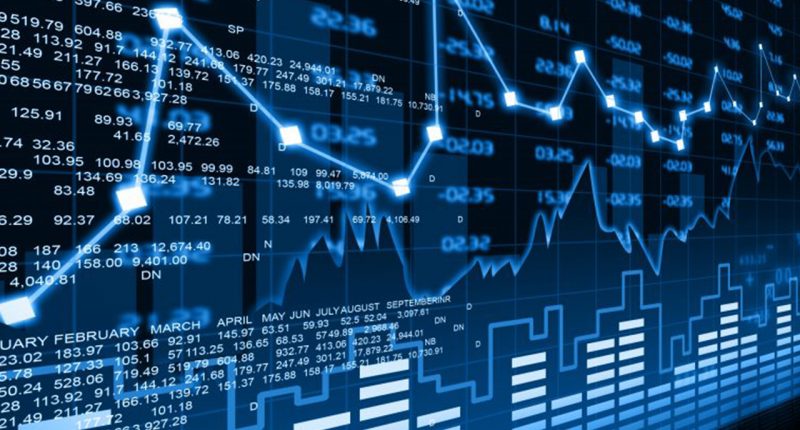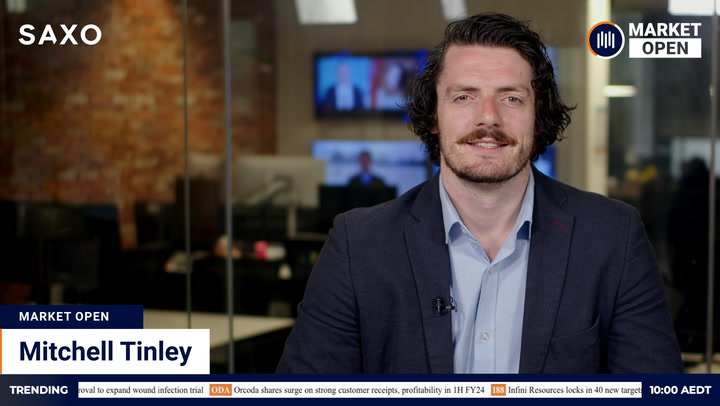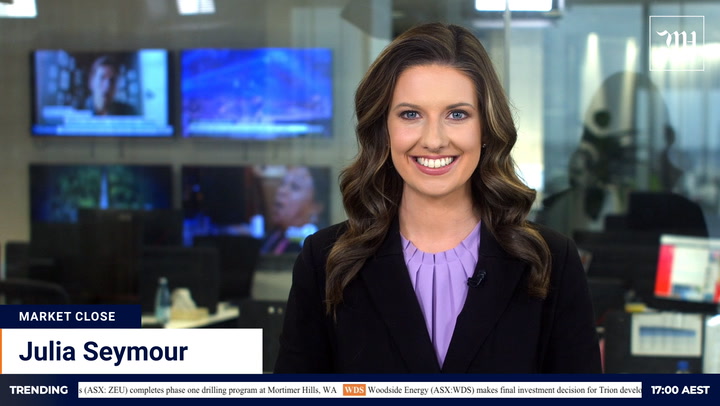The Australian trading week looked set for a rocky start following declines on Wall Street and a weekend of elevated Covid figures.
ASX futures declined 37 points or 0.51 per cent as the major US indices turned negative for the week.
Iron ore, copper and gold retreated. Oil steadied at the end of its worst week since March. The dollar dipped briefly below 74 US cents.
The weekend brought no relief from the rising Covid numbers that have prompted lockdowns in eastern states and dampened buying interest on the ASX. Victoria reported 19 new local cases on Saturday and 16 cases yesterday. New South Wales tightened restrictions as it reported double-digit tallies both days: 111 on Saturday and 105 on Sunday.
Wall Street
US stocks declined as inflation worries dampened buying interest and a rebound in coronavirus cases weighed on “reopening stocks”.
The S&P 500 fell 33 points or 0.75 per cent. The Dow Jones Industrial Average shed 299 points or 0.86 per cent. The Nasdaq Composite gave up 116 points or 0.8 per cent.
The declines put an end to three-week winning runs. The S&P 500 lost almost 1 per cent last week, the Dow 0.52 per cent and the Nasdaq 1.87 per cent.
The market was rattled over the course of the week by a seemingly inexorable decline in bond yields. While falling yields are a plus for growth stocks that depend heavily on borrowing, the decline since February – effectively a retreat to safety – suggests bond traders are becoming much less optimistic about economic growth than equity traders.
“I think the continued drop in the bond yield is scaring investors overall — but particularly equity investors,” James Paulsen, chief investment strategist at The Leuthold Group, told CNBC. “The fears are it’s giving a better read on Covid and maybe a coming slowdown,” he added.
The University of Michigan’s consumer sentiment index fell to 80.8 from 85.5 in June. The report showed Americans were growing concerned about inflation, anticipating prices will rise 4.8 per cent in the next year.
Investors have become increasingly worried by a resurgence in Covid cases as the Delta variant spreads. Total cases in the US increased by 70 per cent last week. Los Angeles County announced it would reimpose mandatory masks.
Cruise lines Carnival and Norwegian fell 4.69 per cent and 5.36 per cent, respectively. The S&P airlines index slid 3.57 per cent. Hotel groups Hyatt and Marriott dropped 2.4 and 3.21 per cent.
The tech sector, which hit a record on Wednesday, fell 0.97 per cent. Tech giants Apple, Amazon and Nvidia were among the biggest drags.
Australian outlook
A challenging start to the trading week coming up, with futures indicating the index will hand back much of last week’s advance. Friday’s setback on Wall Street came just as the ASX was finally showing signs of moving on from the stultifying effect of the Greater Sydney lockdown.
The S&P/ASX 200 put on 75 points or 1 per cent last week, rising on Friday even as Victoria returned to lockdown. The advance broke a run of three straight weekly declines since the start of the Bondi outbreak.
The heavyweight miners provided much of last week’s momentum while the banks slid for a fourth week. Expectations for demand for raw materials lifted after the People’s Bank of China loosened lending restrictions to reinvigorate the economy. BHP hit a new peak on Friday, propelling the materials sector to a record.
However, today’s outlook for the sector is negative. BHP and Rio Tinto logged solid declines overseas on Friday. The US materials sector sagged 1.53 per cent as part of a broader sell-off in cyclicals. The energy sector dived 2.77 per cent, financials 1.34 per cent and industrials 0.86 per cent.
Bond proxies in the US attracted funds as falling yields encouraged investors to look elsewhere for better returns. Utilities gained 0.99 per cent, health 0.22 per cent and consumer staples 0.15 per cent.
Market bulls will take comfort from the fact the ASX has largely marked time during the Greater Sydney lockdown, rather than retreating. That suggests scope for further gains once the current breakouts are under control.
The quarterly reporting season kicks into gear this week with updates from BHP (Tuesday); South32 (Wednesday); and Santos, Newcrest and Iluka (Thursday). (Source: CommSec)
Economic data seems unlikely to have a major impact because little of it will capture the impact of the recent lockdowns. Highlights include the minutes from this month’s RBA policy meeting (Tuesday); June retail sales (Wednesday); and trade and quarterly business confidence data (Thursday).
The IPO pipeline has shown signs of slowing in recent days. This week’s schedule currently includes: Western Gold Resources, Western Mines (Tuesday); BCAL Diagnostics, NobleOak Life, Openn Negotiation (Wednesday); Victory Goldfields (Thursday); and Almonty Industries (Friday). Note, listings are prone to frequent slippage/postponement.
In the US, corporate earnings will likely to drive sentiment during a week light on economic data. Potential market-movers include housing starts on Tuesday, existing home sales on Thursday, and manufacturing and services PMIs on Friday.
The first week of the quarterly reporting season got off to a soft start, with share prices declining on average in the face of strong results. The second week of the season broadens from the banks into airlines, healthcare and tech companies. Highlights include: IBM (tonight); Netflix, United Airlines, Travelers (Tuesday); Johnson and Johnson, Coca-Cola (Wednesday); Intel, AT&T, Twitter, Dow, American Airlines (Thursday); and AmEx and Honeywell (Friday).
The dollar, which dipped below 74 US cents on Friday, bounced 0.14 per cent this morning to 74.04 US cents.
Commodities
The Organization of the Petroleum Exporting Countries and allies (OPEC+) announced a deal yesterday to phase out oil production caps by September next year. Production will start to increase from next month by 400,000 barrels per day and will rise by the same amount each successive month.
The caps, introduced to support prices during the pandemic, helped propel crude prices to two-year highs. Brent crude settled 12 cents or 0.2 per cent ahead on Friday at US$73.59 a barrel.
Iron ore trimmed a winning week. The spot price for ore landed in China retreated US$1.20 or 0.5 per cent to US$221.10 a tonne. For the week, ore improved US$4.60 or 2.1 per cent.
BHP‘s US-listed stock dropped 2.58 per cent on Friday and its UK-listed stock lost 1.53 per cent. Rio Tinto dived 4.01 per cent in the US and 3.44 per cent in the UK.
Gold suffered its first loss in four sessions as bond yields ticked higher and the greenback steadied. Gold for August delivery settled $14 or 0.8 per cent lower at US$1,815 an ounce. The NYSE Arca Gold Bugs Index fell 2.95 per cent.
Tin and nickel were standouts on the London Metal Exchange. Tin climbed 1.9 per cent to US$34,456 a tonne. Prices neared a record last week as supply was affected by shipping problems and political and pandemic issues in Myanmar, a major producer.
Nickel, a key ingredient in stainless steel, was boosted by surging Chinese steel prices, rising 1.6 per cent to US$19,057.50. Copper eased 0.6 per cent, aluminium 1.3 per cent and lead 0.5 per cent. Zinc gained 1.2 per cent.







